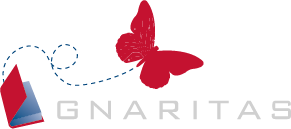Personalized Learning Experiments with Generative AI
Diversity defines the learner’s journey — learners’ goals, requirements, and capabilities vary widely on an individual level, and the complexities increase when we consider learning in group settings. Yet, designed learning experiences frequently remain standardized and impersonal, clashing with the varied tapestry and collaborative potential inherent in individual and group learning contexts. This recognized challenge has mobilized forward-thinking educators, policymakers, and innovators to seek transformative solutions for both personal and shared educational experiences.
Technology has oft been proposed as a means to enhance personalization in learning. While there have been successes, the results have just as often been mixed. Generative AI, embodied by technologies like ChatGPT, introduces new possibilities, offering capabilities for real-time interaction and adaptation to individual learner needs.
Beyond their much-discussed role in powering conversational AI platforms like ChatGPT, Generative AI and large language models (LLMs) possess a broad range of capabilities to potentially enhance learning experience design and the educational experiences of the learners themselves. They can be deployed to personalize learning, create adaptive content, and provide timely feedback, with the goal of boosting learning and performance.
The new capabilities of generative AI represent the latest tech innovation in the learning landscape. While technology alone is not a panacea, the unique properties of generative AI prompt us to reconsider what is possible in personalized learning.
Potential applications include:
- Skills Analysis: Evaluating and identifying skill deficits, suggesting targeted learning interventions.
- Customized Learning Paths: Creating content that aligns with individual interests, capabilities,and progression.
- Scalable Content Creation: Efficiently generating a wide array of educational materials.
- Dynamic Content Curation: Continually integrating fresh data and research into curricula to maintain relevance.
- Summarization: Boiling down expansive information into brief, easily digestible formats.
- Translation and Localization: Customizing educational materials to fit various linguistic and cultural contexts.
- Research Assistance: Enhancing the efficiency of gathering and analyzing current academic research.
We’re starting a new series of blog posts to examine the possibilities. The “Gnowbot” series will aim to unpack this evolving landscape, providing analysis, experimentation, and a space for dialogue. Here’s what lies ahead:
- Generative AI in the Learning Ecosystem: Exploring the core functionality, capabilities, and limitations of generative AI and its potential role in enhancing the learning experience. Including how it supports coaches and experts in crafting more effective educational strategies that benefit learners.
- The Art and Science of Prompts to support Learning: Providing an in-depth look at the various prompt categories and their design intricacies, with a focus on how educators and learning experience designers can utilize these prompts to optimize generative AI interactions for better learner outcomes.
- Bespoke Learning and the Support Cast: Evaluating the potential of generative AI in offering unique educational experiences and discussing how this technology not only serves learners but also acts as a tool for educators, learning designers, and coaches to develop tailored learning strategies.
- Leveraging Retrieval-Augmented Generation for Enhanced Learning Support: Examining the RAG framework and its application in personalizing learning experiences, and discussing how it empowers coaches and content creators to produce sophisticated learning tools for both individuals and groups.
- Facilitating Individual and Group Learning with Generative AI: Investigating how generative AI and related technologies like RAG can enhance personalized learning journeys and group learning dynamics, while also examining how educators can use these tools to identify and bridge learning gaps.
- Generative AI: Case Studies from the Field: Diving into real-world applications of generative AI in education, highlighting outcomes for learners and the roles of instructional designers and facilitators in utilizing AI for improved learning experiences.
- Ethics and Efficiency: Generative AI in the Hands of Educators: Tackling the complex ethical challenges of using generative AI in education and exploring how learning professionals navigate these concerns to maintain a learner-focused approach while ensuring privacy and equity.
- The Evolving Landscape of AI-Assisted Learning: Projecting the future of generative AI and its impact on the field of education, assessing how upcoming technologies can support personal and collaborative learning, and discussing the preparedness required from educators and designers.
We invite you to join us, share your insights, and contribute to shaping the future of generative AI in personalized learning. Stay engaged, join the conversation, and let’s discover the future together!
